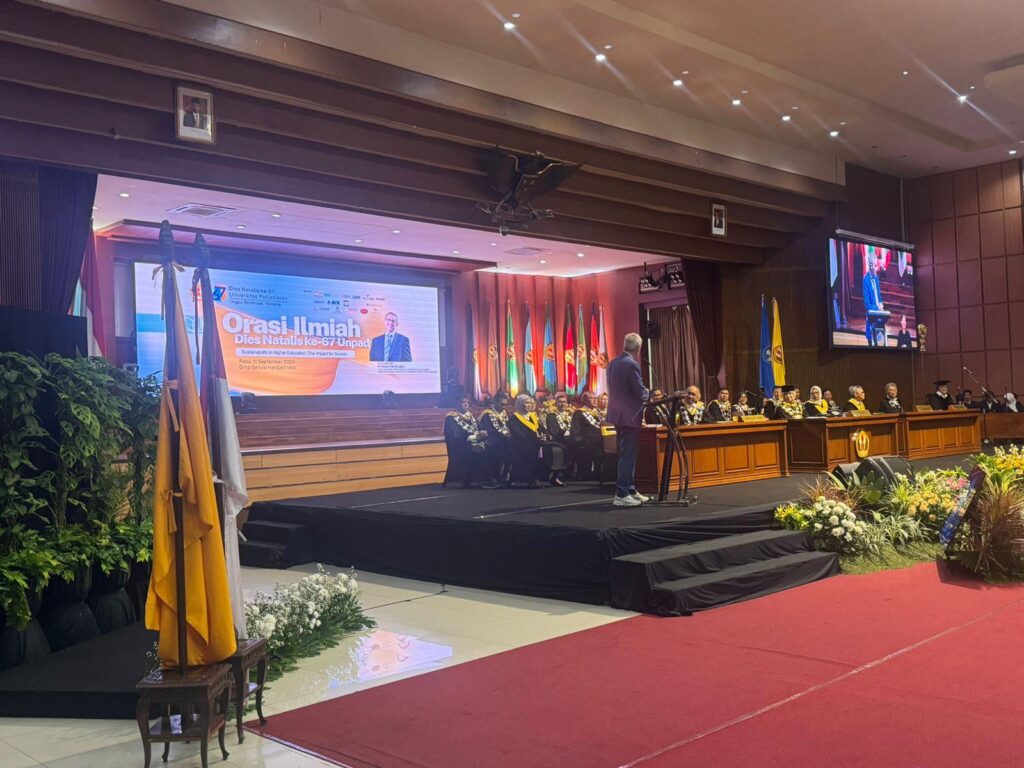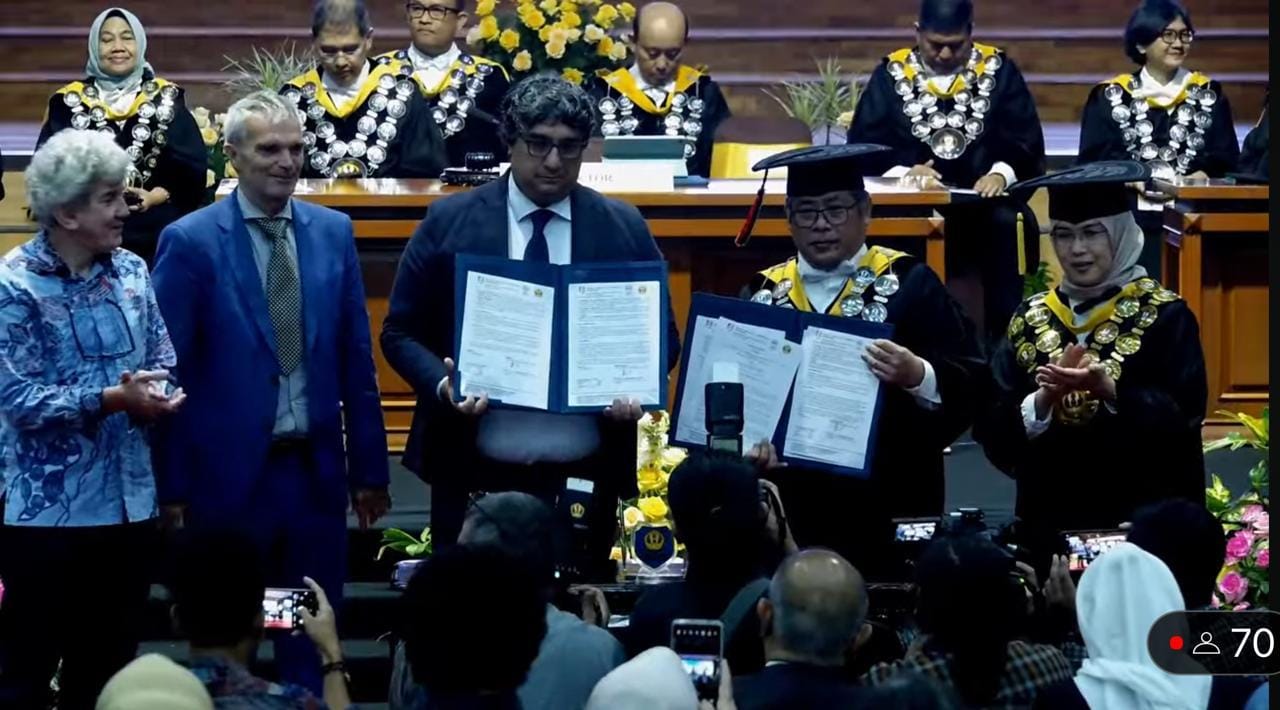Java, September 11, 2024 – CoEHAR, the Center of Excellence for the Acceleration of Harm Reduction established at the University of Catania in 2018, is expanding its activities by signing a letter of intent with the Universitas Padjadjaran in Indonesia. This is a significant step to promote the internationalization process of the center and a recognition of CoEHAR’s global strategic importance.
The document – signed in Bandung, West Java, in the presence of CoEHAR founder, Prof. Riccardo Polosa, and the director, Prof. Giovanni Li Volti – is a formal commitment by both parties to collaborate in the creation and launch of a new CoEHAR branch in Indonesia, which will serve as a regional center for research, outreach, and education on smoking harm reduction in the Asia-Pacific region. Also present at the signing of the agreement were scientific authorities from the Italian government, including the Scientific Attaché of the Italian Embassy in Indonesia, Roberto Carniel, who was also representing the Italian Ambassador Benedetto Latteri.
The Asian activities will be led by Dr. Ronny Lesmana, dr., M.Kes., AIFO, PhD, Associate Professor at Universitas Padjadjaran, and Prof. Dr. Amaliya, DDS, MSc Full Professor in Periodontology at the same university. They have been key partners, respectively, in the Replica project and the Smile project, which are pillars of CoEHAR’s international research efforts.
The establishment of “CoEHAR Padjadjaran” in Indonesia will provide a dedicated center to address local challenges through research, capacity building, and the promotion of relevant policies at the local level. This regional center will act as a hub for collaboration between researchers, public health professionals, and policymakers in the Asia-Pacific region, enhancing the impact of global efforts in smoking harm reduction.
According to international statistics, including those from the WHO, it was estimated that in 2022, Indonesia had nearly 80 million smokers aged 15 and older. This places the country third in the world in terms of the number of tobacco users. Conventional cigarette smoking remains the second highest risk factor in Indonesia, causing combined deaths and disabilities, with the leading causes of death being stroke, ischemic heart disease, COPD, and lung cancer. Conducting research on smoking harm reduction in Asian regions is essential.

“The research conducted by the CoEHAR team at the University of Catania is changing the world, contributing to the revolution of policies aimed at protecting public health in many countries. Supporting the CoEHAR efforts in Indonesia is a great source of pride for us but also a promise of further commitment to change the fate of a country plagued by unhealthy habits and lifestyles,” said prof. Riccardo Polosa.
“Low- and middle-income countries in the Asian region represent a different and multifaceted field of investigation and activity. Our goal,” added prof. Giovanni Li Volti, “is to enhance research activities by developing joint projects that can fully utilize both the human and technological resources of all the universities and institutions involved, which will contribute to change and the exchange of knowledge and skills.”
The relationship between the two universities, already governed by a previous Framework Agreement signed in 2020 and a Mobility Agreement signed in 2023, to promote joint research, mobility, and training in the field of smoking harm reduction, is now strengthened with this letter of intent. This sets the stage for the definition of an Operational Collaboration Agreement, which will be signed in the coming months in Catania, to better regulate the relations between the two research centers, CoEHAR’s strategic support for the new Indonesian center, and the start of various activities over the next five years, including academic training, mobility and exchange programs, joint research projects, and partnership activities that will lead to the development of a global network based in the Asian region.
This landmark achievement has been enthusiastically welcomed by Indonesian experts, who see the launch of the new activities as a turning point in terms of scientific and economic impact. According to Dr. Ronny Lesmana: “Through our joint efforts in academia and research, we can significantly contribute to addressing numerous issues in Indonesia, particularly in West Java, East Asia, the Asia-Pacific region, and globally, focusing on smoking harm reduction and improving the lifestyle and health of millions of people.”
“The work carried out in recent years in collaboration with our Sicilian colleagues has already allowed us to achieve important results in both research and the promotion of new lifestyles in Indonesia. We will continue on this path with further commitment and constant dedication,” concluded prof. Amaliya.




